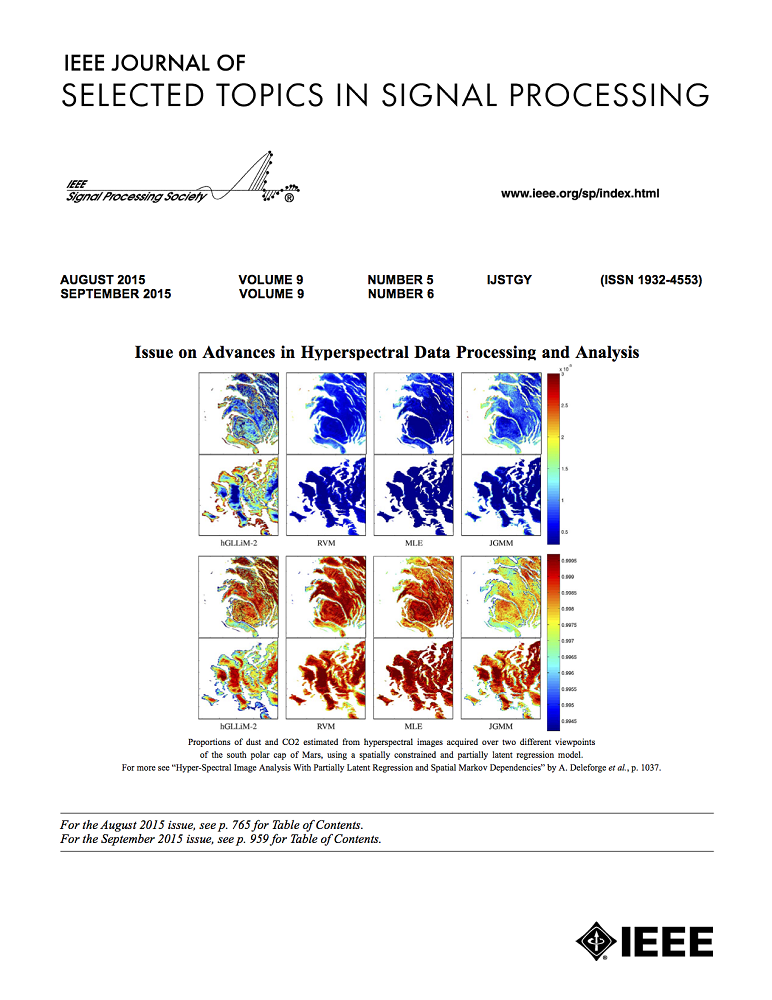INDIGO+: A Unified INN-Guided Probabilistic Diffusion Algorithm for Blind and Non-Blind Image Restoration
IF 8.7
1区 工程技术
Q1 ENGINEERING, ELECTRICAL & ELECTRONIC
IEEE Journal of Selected Topics in Signal Processing
Pub Date : 2024-09-09
DOI:10.1109/JSTSP.2024.3454957
引用次数: 0
Abstract
Generative diffusion models are becoming one of the most popular prior in image restoration (IR) tasks due to their remarkable ability to generate realistic natural images. Despite achieving satisfactory results, IR methods based on diffusion models present several limitations. First of all, most non-blind approaches require an analytical expression of the degradation model to guide the sampling process. Secondly, most existing blind approaches rely on families of pre-defined degradation models for training their deep networks. The above issues limit the flexibility of these approaches and so their ability to handle real-world degradation tasks. In this paper, we propose a novel INN-guided probabilistic diffusion algorithm for non-blind and blind image restoration, namely INDIGO and BlindINDIGO, which combines the merits of the perfect reconstruction property of invertible neural networks (INN) with the strong generative capabilities of pre-trained diffusion models. Specifically, we train the forward process of the INN to simulate an arbitrary degradation process and use the inverse to obtain an intermediate image that we use to guide the reverse diffusion sampling process through a gradient step. We also introduce an initialization strategy, to further improve the performance and inference speed of our algorithm. Experiments demonstrate that our algorithm obtains competitive results compared with recently leading methods both quantitatively and visually on synthetic and real-world low-quality images.INDIGO+:一种用于盲和非盲图像恢复的统一inn引导概率扩散算法
生成扩散模型由于能够生成逼真的自然图像而成为图像恢复(IR)任务中最受欢迎的先验模型之一。尽管取得了令人满意的结果,但基于扩散模型的红外方法存在一些局限性。首先,大多数非盲方法需要退化模型的解析表达式来指导采样过程。其次,大多数现有的盲方法依赖于预定义的退化模型家族来训练它们的深度网络。上述问题限制了这些方法的灵活性,从而限制了它们处理实际降级任务的能力。本文结合了可逆神经网络(INN)的完美重建特性和预训练扩散模型的强大生成能力,提出了一种新的基于INN引导的非盲和盲图像恢复概率扩散算法INDIGO和blindinigo。具体来说,我们训练INN的正向过程来模拟任意退化过程,并使用逆过程来获得中间图像,我们使用该中间图像来指导反向扩散采样过程通过梯度步骤。为了进一步提高算法的性能和推理速度,我们还引入了一种初始化策略。实验表明,在合成图像和真实低质量图像上,我们的算法在定量和视觉上都取得了与目前领先的方法相比具有竞争力的结果。
本文章由计算机程序翻译,如有差异,请以英文原文为准。
求助全文
约1分钟内获得全文
求助全文
来源期刊

IEEE Journal of Selected Topics in Signal Processing
工程技术-工程:电子与电气
CiteScore
19.00
自引率
1.30%
发文量
135
审稿时长
3 months
期刊介绍:
The IEEE Journal of Selected Topics in Signal Processing (JSTSP) focuses on the Field of Interest of the IEEE Signal Processing Society, which encompasses the theory and application of various signal processing techniques. These techniques include filtering, coding, transmitting, estimating, detecting, analyzing, recognizing, synthesizing, recording, and reproducing signals using digital or analog devices. The term "signal" covers a wide range of data types, including audio, video, speech, image, communication, geophysical, sonar, radar, medical, musical, and others.
The journal format allows for in-depth exploration of signal processing topics, enabling the Society to cover both established and emerging areas. This includes interdisciplinary fields such as biomedical engineering and language processing, as well as areas not traditionally associated with engineering.
 求助内容:
求助内容: 应助结果提醒方式:
应助结果提醒方式:


